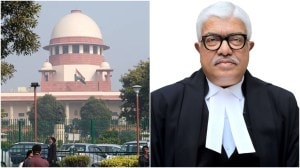Twilight in Hyderabad
Small details of routine lives often weave larger stories. Domestic talk dots Zeenuth Futehally’s Zohra, highlighting the predicament o...

Small details of routine lives often weave larger stories. Domestic talk dots Zeenuth Futehally’s Zohra, highlighting the predicament of a Hyderabad family struggling to keep its splendid and refined isolation in an India inching towards independence.
Zohra, born in a nawab’s family, is brought up with all the privileges and the limitations that generally come together with such a lineage. More interested in books than boys, she falls in line with family pressures and marries young. Bashir, 12 years her senior, is Cambridge-educated, westernised but opinionated. Two kids and some years later into this placid domestic life comes Hamid, Bashir’s nationalistic brother, from England. He gets with him the excitement that clings to a stranger and a viewpoint diverging from the old nawabs and the young Hyderabadis trying to find a golden mean between an old culture and modern values.
Hamid and Bashir are the two differing ideals and voices of the Indian Muslim. Bashir, the man with a scientific temper, believes the ‘‘large hearted’’ and more ‘‘tolerant’’ Muslims will be trampled in a democracy where the majority will be Hindu. He also maintains that an open battle, a combat suited to the Muslim ‘‘genius’’, is the only way to counter imperialism. His views lead Hamid, the Gandhian, to exclaim: ‘‘Why do we have to talk of the Muslim genius and the Hindu genius? After all, the majority of us come from the same stock. We are mostly converts, and have the same background of thought.’’
Zohra belongs to a set of fiction that deals with that twilight zone of hope and nostalgia. If Qurratulain Hyder’s My Temples Too was a fond farewell to genteel Lukhnawi life, Futehally’s Zohra is a Hyderabadi novel of manners that’s also a comment on confusing times — personal and national.
First published in 1950 with a foreword by K.P.S. Menon, like Hyder’s novel, this too explores the twin themes of a personal journey and a nation’s growing consciousness of itself. The one is reflected in the other. As Futehally wrote in a preface to the original edition: ‘‘I became increasingly conscious of how different that little world of ours, in Hyderabad, had been and I felt the urgency to record it, for owing to the passage of time it was fast disappearing.’’
Even as the novel progresses, in some Hyderabadi homes the zenana is being dismantled. Hamid’s quarter in his home is virtually an adda and his circle of close friends include two girls: Zohra’s school friend Nalini and the Parsi Khorshed. Gandhi and his ideals run like a thread. It’s his influence that makes Nalini’s family drop their disapproval of her eating at a Muslim household.
But Zohra is more than a mere document of a nation’s history. It’s also a personal story of unfulfillment. A story about limitations but also the promise of change. In the end for Zohra there is a personal escape but only in death.





- 01
- 02
- 03
- 04
- 05


























